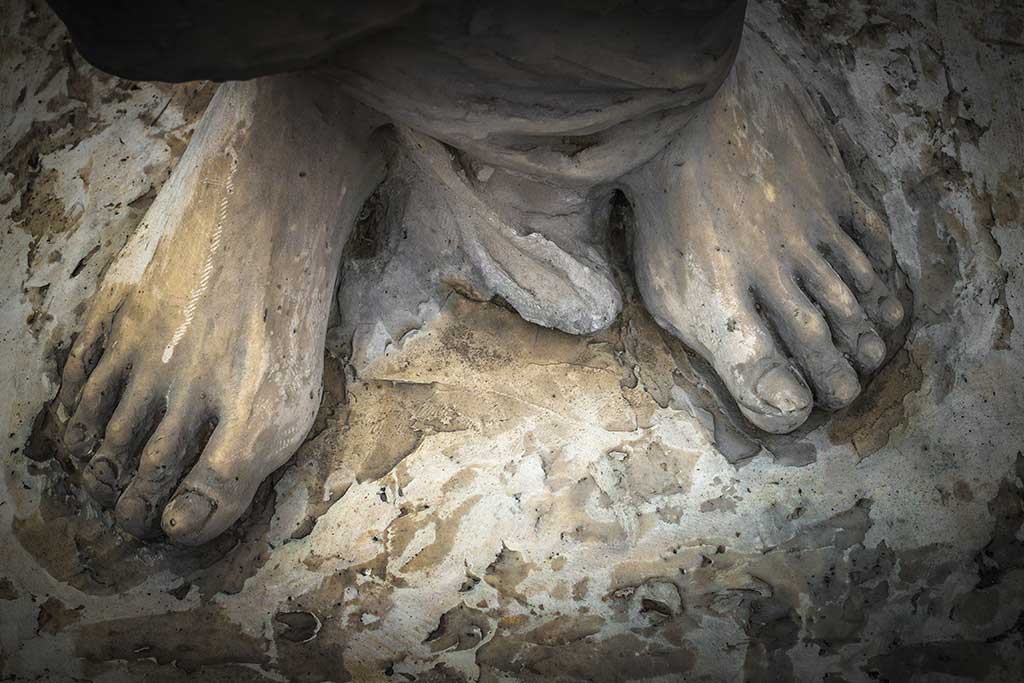
How the Incarnation Should Impact Our Daily Lives
The Word became flesh and made his dwelling among us. We have seen his glory, the glory of the one and only Son, who came from the Father, full of grace and truth. – John 1:14
In our modern age, we prefer to understand and explain our world rationally and with cold hard evidence. Talk of mystery and the supernatural isn’t popular. And yet one of the basic tenets of Christianity seems completely irrational, indemonstrable and too mysterious to comprehend: The incarnation.
It’s not only scandalous now in our culture and it was radical even in the ancient world, – to think that a divine being could—or would even want to—become human. And how could such a person be both human and divine at the same time?
Yet Christian teaching, based on Scripture, tells us this is what happened.
The incarnation of God the Son is indeed a profound mystery. The invisible, immaterial God condescended to take on human form. The Creator became that which he made to redeem humanity and ultimately all creation. This underscores both God’s humility and his love for his creation. Further, by becoming a human, God has dignified humanity in a way that goes beyond creating men and women in his image.
“Christ did not come to explain human suffering or to eliminate it. Rather, He came to fill human suffering with His presence.” — Father George Calciu
The ancient world acknowledged that gods, goddesses and other supernatural beings could possibly take on a bodily form. In Greek and Roman mythology, such divine beings usually retain their self-consciousness and simply assume human form in order to communicate with human beings.
I. Howard Marshall explains: “Their temporary manifestation in human form is an extension of their heavenly life, just as an actor assumes a mask and then discards it again. The gods thus simply appear to be human.”¹ The New Testament writers, however, mean something far different when they describe the incarnation. Marshall explains: “Whereas the gods temporarily take on a human form, the Word is united permanently with a human body to be a specific person, Jesus of Nazareth, and it is inconceivable that what God has joined together should ever be sundered.”²
While some prominent men in the ancient world were considered the offspring of the gods and mortal women, there is no indication that the ancients believed a divine person became human. Rather, they believed an entirely new person had come into existence. Throughout history, there is nothing fully comparable to the biblical idea that God became a man.
To be sure, God appeared visibly and audibly to particular persons (see Genesis 3:8; Exodus 33:18–34:9). But these instances are far different from God the Son becoming and forever remaining human. It is unprecedented in human history. Only God could ordain and orchestrate it.
Sacrificial Love
God the Son did not become human so he could flaunt his power or use it to his own advantage. No, he became one of us in order to redeem us, to free us from sin and death and reconcile us to God.
The Son of God became a servant—while still remaining fully divine—so that we might once again become sons and daughters of the living God. That’s what Paul points out in Philippians when he says that Jesus “did not consider equality with God something to be used to his own advantage” but “made himself nothing by taking the very nature of a servant” (Philippians 2:6–7).
The incarnation, therefore, serves as a model of sacrificial love, and it should exemplify for us not just who we are as people, but also who we are as workers. When we see problems at work or in our communities, we shouldn’t dismiss them as the problems of other people. Christ took on our problems, our sin and death, and provided a solution. As Christians who are now united to Christ, we reflect the love of God and the work of Christ when we sympathize with others and serve and love them.
Action
How might the incarnation of Christ lead you to love and serve others in your life and work?
¹ I. Howard Marshall, “Incarnation,” in New Dictionary of Biblical Theology, ed. T. Desmond Alexander and Brian S. Rosner (Downers Grove, IL: InterVarsity, 2000), 578.
² Ibid.
Article from the NIV Faith & Work Bible.

NIV Faith & Work Bible
The NIV Faith and Work Bible helps you answer the question “How does my faith relate to my work?” Study features on doctrine and Scripture application help you live out God’s truths in your daily work life.
Learn More





